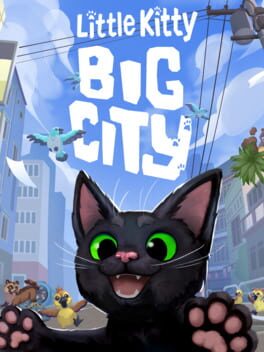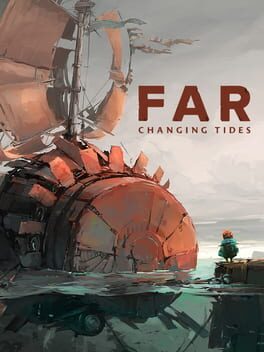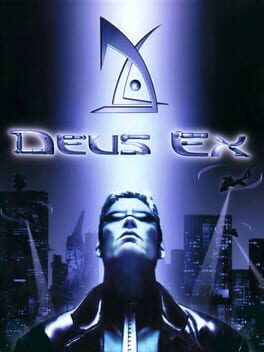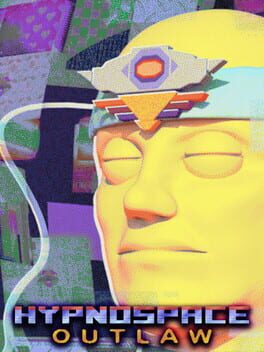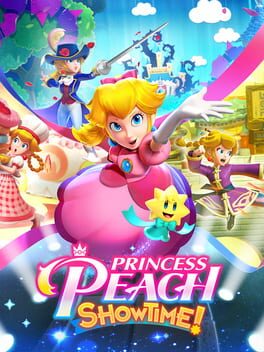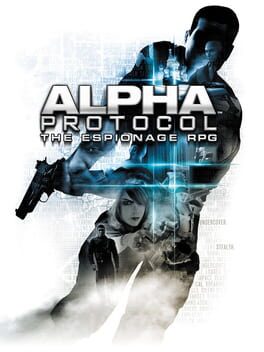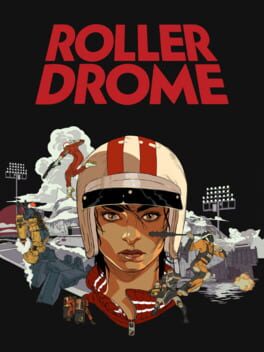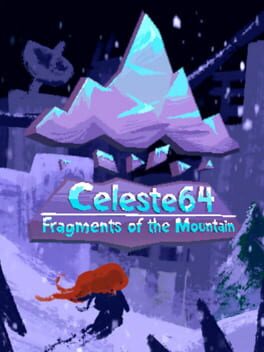poochy
31 Reviews liked by poochy
EarthBound
1994
"Ness thought he heard his mother from far away."
Earthbound has been a presence in my life since I was a child, though initially it was from quite a distance. I would see the game referenced in magazine articles, or ScrewAttack Top 10s. I would see it mentioned in forum posts as an underrated classic, ballooning in importance as the years went on until it was eventually championed as one of the all time great video games. When Earthbound was released for the Wii U in 2013, I finally had a chance to play it. I enjoyed it quite a bit, but somehow got stuck in Twoson and dropped the game there. Many years later it was again rereleased, this time for the Switch. "Finally, I can redeem myself and finish Earthbound." I thought. Once again, my playthrough ended in Twoson. Years have passed, and I'm happy to report that over a decade after my first attempt to play Earthbound, I've finally rolled credits. It is an odd feeling.
Earthbound has plenty of faults. Its battle system is pretty good, but can be overbearing at times when there exist some fights that simply will not let you win. Endgame enemies deflection your damage and causing a guaranteed HP loss for multiple party members upon death is a good idea to force cautious resource management on the player, but by the time you've reached that final dungeon you're probably too busy wanting the game to be over to be welcoming of that added stress. Earthbound's narrative progression is gated by a lot of little fetch quests and point A to B navigation, none of which are particularly obtuse but some of which definitely grate. Completing a dungeon only to be told you have to spend 10 minutes returning to a prior area, talking to an NPC, and then going back to the dungeon location to continue to the story happens on several occasions and it never feels like anything other than padding. The game ultimately feels quite a bit longer than it should.
The core of the game's content is quite strong, however. Bosses are fun and interesting, a lot of the enemies are charming and likeable, and every area you enter has great appeal. The art and music are unique as hell, and lends the game an irresistible charm. No other game has ever quite managed to have the 'flavor' of an Earthbound, even a game like Undertale that you can tell is trying its hardest. I think that's because, for all its irreverence, Earthbound is hiding within itself one of video gaming's most melancholy hearts. The nostalgia people have for Earthbound today is due to the game itself being a total pincer attack - on one hand, you have its inimitable style, and on the other, it's a game very much about nostalgia itself.
I remember the first time I played Earthbound, back in 2013. I was still in high school, though not for long. I would finish school and come home most days to walk my dog and handle errands around the house. Often I'd snack on a few strawberries - my favorite fruit. Eventually my mom would come home. She'd cook dinner, we'd all eat, and after dishes were done I'd head to my room to do homework or watch TV or play a game. Usually the latter. Playing Earthbound now, I can't help but reflect on those days. Things are a lot harder now - that's how it goes everyone, right? Things get tougher the older you get and the less connected you get from the way things used to be. One thing people do to help cope is to remember. Remember sitting down with their family and eating their favorite meal. Remember their childhood friends playing a game at the park. Remember their mother's laugh when they would tell a silly joke. As we get old, we all go through a terribly difficult journey, each our own. We battle forces from outside as well as within. Often, we overcome them. We forge our paths with determination, vision, and love. And that courage and love doesn't come from nothing, it gets instilled in us when we are young. By our mothers, our fathers, our teachers, our friends. It is through them that we are made to become the versions of ourselves that can overcome trials and succeed at tasks once unimaginable. And it is through our memories of them that we can keep ourselves level.
Yesterday was Mother's Day. I couldn't afford to buy my mother a gift. She smiled at me and we ate quiche and strawberries.
Earthbound has been a presence in my life since I was a child, though initially it was from quite a distance. I would see the game referenced in magazine articles, or ScrewAttack Top 10s. I would see it mentioned in forum posts as an underrated classic, ballooning in importance as the years went on until it was eventually championed as one of the all time great video games. When Earthbound was released for the Wii U in 2013, I finally had a chance to play it. I enjoyed it quite a bit, but somehow got stuck in Twoson and dropped the game there. Many years later it was again rereleased, this time for the Switch. "Finally, I can redeem myself and finish Earthbound." I thought. Once again, my playthrough ended in Twoson. Years have passed, and I'm happy to report that over a decade after my first attempt to play Earthbound, I've finally rolled credits. It is an odd feeling.
Earthbound has plenty of faults. Its battle system is pretty good, but can be overbearing at times when there exist some fights that simply will not let you win. Endgame enemies deflection your damage and causing a guaranteed HP loss for multiple party members upon death is a good idea to force cautious resource management on the player, but by the time you've reached that final dungeon you're probably too busy wanting the game to be over to be welcoming of that added stress. Earthbound's narrative progression is gated by a lot of little fetch quests and point A to B navigation, none of which are particularly obtuse but some of which definitely grate. Completing a dungeon only to be told you have to spend 10 minutes returning to a prior area, talking to an NPC, and then going back to the dungeon location to continue to the story happens on several occasions and it never feels like anything other than padding. The game ultimately feels quite a bit longer than it should.
The core of the game's content is quite strong, however. Bosses are fun and interesting, a lot of the enemies are charming and likeable, and every area you enter has great appeal. The art and music are unique as hell, and lends the game an irresistible charm. No other game has ever quite managed to have the 'flavor' of an Earthbound, even a game like Undertale that you can tell is trying its hardest. I think that's because, for all its irreverence, Earthbound is hiding within itself one of video gaming's most melancholy hearts. The nostalgia people have for Earthbound today is due to the game itself being a total pincer attack - on one hand, you have its inimitable style, and on the other, it's a game very much about nostalgia itself.
I remember the first time I played Earthbound, back in 2013. I was still in high school, though not for long. I would finish school and come home most days to walk my dog and handle errands around the house. Often I'd snack on a few strawberries - my favorite fruit. Eventually my mom would come home. She'd cook dinner, we'd all eat, and after dishes were done I'd head to my room to do homework or watch TV or play a game. Usually the latter. Playing Earthbound now, I can't help but reflect on those days. Things are a lot harder now - that's how it goes everyone, right? Things get tougher the older you get and the less connected you get from the way things used to be. One thing people do to help cope is to remember. Remember sitting down with their family and eating their favorite meal. Remember their childhood friends playing a game at the park. Remember their mother's laugh when they would tell a silly joke. As we get old, we all go through a terribly difficult journey, each our own. We battle forces from outside as well as within. Often, we overcome them. We forge our paths with determination, vision, and love. And that courage and love doesn't come from nothing, it gets instilled in us when we are young. By our mothers, our fathers, our teachers, our friends. It is through them that we are made to become the versions of ourselves that can overcome trials and succeed at tasks once unimaginable. And it is through our memories of them that we can keep ourselves level.
Yesterday was Mother's Day. I couldn't afford to buy my mother a gift. She smiled at me and we ate quiche and strawberries.
From the cover alone, you can probably already tell what you're in for with Little Kitty, Big City, and yes, it is exactly as charming, delightful, and obnoxiously cute as you want it to be.
That said, as ridiculous as it sounds, I did have some slight apprehension going into this, given what kind of game Stray was (or, in this case, was not).
Thankfully, underneath all the sweetness, there is a fun lil platformer to be found in Little Kitty, Big City and it's not merely a cute cat simulator where you run around doing cute cat things. I mean, it is very much that as well, but it's also a half-decent collectathon with some simple but engaging puzzles and side quests for the titular little kitty to embark upon.
Really, 'simple but engaging' is perhaps the best way to describe this game. It doesn't try to be anything more or less than it needs to be. The entire thing can be finished in less than 6 hours, and outside of some wonky catforming controls and animations, it holds your attention the entire way through.
With fun platforming, endlessly delightful little touches to the cat's behaviour and animations throughout, an upbeat, jazzy score and a delightful sense of humour, it's exactly the kind of game you need to take a break from the 50+ hour narrative-heavy, live-service AAA games that inhabit the space.
Sometimes you just want to reject modernity and embrace kitty.
7.5/10
That said, as ridiculous as it sounds, I did have some slight apprehension going into this, given what kind of game Stray was (or, in this case, was not).
Thankfully, underneath all the sweetness, there is a fun lil platformer to be found in Little Kitty, Big City and it's not merely a cute cat simulator where you run around doing cute cat things. I mean, it is very much that as well, but it's also a half-decent collectathon with some simple but engaging puzzles and side quests for the titular little kitty to embark upon.
Really, 'simple but engaging' is perhaps the best way to describe this game. It doesn't try to be anything more or less than it needs to be. The entire thing can be finished in less than 6 hours, and outside of some wonky catforming controls and animations, it holds your attention the entire way through.
With fun platforming, endlessly delightful little touches to the cat's behaviour and animations throughout, an upbeat, jazzy score and a delightful sense of humour, it's exactly the kind of game you need to take a break from the 50+ hour narrative-heavy, live-service AAA games that inhabit the space.
Sometimes you just want to reject modernity and embrace kitty.
7.5/10
Animal Well
2024
Honestly, if it weren't for PS Plus making this free for this month, I might not have checked out Animal Well right away. And what a shame that would be, because this game is truly special.
I will admit, it didn't seem that way to me initially. With the retraux pixel-art style and the TV scanline filter (which thankfully can be toggled off), it wasn't too appealing to me visually. No disrespect to games that also employ those visuals, but they can usually be a mixed bag, at least for me anyway.
Despite that, however, I do believe that Animal Well uses them to its benefit and helps sell its eerie, otherworldly atmosphere.
Speaking of which, there's next-to-no overt narrative in Animal Well, which is entirely a show-don't-tell experience that thrives on worldbuilding naturally during gameplay. That approach also extends to the gameplay itself, as your goals and abilities are things that you have to uncover as you go. This lends itself to some truly excellent Metroidvania level design and gameplay mechanics as you experiment with button combinations and obstacles to reach said goals.
Seriously, I cannot praise the puzzle design in this game enough. It genuinely belongs up there with the likes of Portal 1 + 2, Myst, and Obra Dinn. It's all incredibly intuitive, and really only once did I refer to a guide, and even then it was to confirm the answer.
That said, admittedly, Animal Well can get in its own way with how obtuse it is. There are a decent number of save points scattered throughout the map; however, backtracking to them is still necessary in some segments. There are also a couple of tedious parts, including a long-winded chase sequence with some jumps that you have to be pixel-perfect to make.
Nevertheless, Animal Well is truly spectacular and well-deserving of the 89 it currently has on OpenCritic, and then some. Any other Metroidvania developers currently playing through it must be equal parts excited and frustrated for what Billy Basso has brought to the genre. Kudos to you, sir.
9/10
I will admit, it didn't seem that way to me initially. With the retraux pixel-art style and the TV scanline filter (which thankfully can be toggled off), it wasn't too appealing to me visually. No disrespect to games that also employ those visuals, but they can usually be a mixed bag, at least for me anyway.
Despite that, however, I do believe that Animal Well uses them to its benefit and helps sell its eerie, otherworldly atmosphere.
Speaking of which, there's next-to-no overt narrative in Animal Well, which is entirely a show-don't-tell experience that thrives on worldbuilding naturally during gameplay. That approach also extends to the gameplay itself, as your goals and abilities are things that you have to uncover as you go. This lends itself to some truly excellent Metroidvania level design and gameplay mechanics as you experiment with button combinations and obstacles to reach said goals.
Seriously, I cannot praise the puzzle design in this game enough. It genuinely belongs up there with the likes of Portal 1 + 2, Myst, and Obra Dinn. It's all incredibly intuitive, and really only once did I refer to a guide, and even then it was to confirm the answer.
That said, admittedly, Animal Well can get in its own way with how obtuse it is. There are a decent number of save points scattered throughout the map; however, backtracking to them is still necessary in some segments. There are also a couple of tedious parts, including a long-winded chase sequence with some jumps that you have to be pixel-perfect to make.
Nevertheless, Animal Well is truly spectacular and well-deserving of the 89 it currently has on OpenCritic, and then some. Any other Metroidvania developers currently playing through it must be equal parts excited and frustrated for what Billy Basso has brought to the genre. Kudos to you, sir.
9/10
FAR: Changing Tides
2022
With the exception of the fact that it is now fully set on water, FAR: Changing Tides is essentially more of the first game. That would sound condescending, but given how great the original game is, it's actually not a terrible thing. Despite this, however, Changing Tides isn't nearly as daring as Lone Sails was.
In fairness, the necessary changes were made to the sequel in regards to the puzzle designs and overall, they feel much more intricate and rewarding than they did before. On the flipside, though, traversing the waters, which, again, is the bulk of what you'll be doing in this game, isn't nearly as exciting or intriguing as riding across dunes and marshes was in Lone Sails.
It's bizarre that this is the case, given that you've got a lot more to do moment-to-moment in order to keep your boat's engine running than with the vehicle in the previous game. Like last time, you have to feed the engine, make sure it doesn't overheat, make necessary repairs, and now you have to keep watch of the sails and prevailing winds.
However, this starts to feel like busywork in a way that Lone Sails didn't, and the reason for that is two-fold. For one, during the second half of the game, you'll be doing a lot of transitioning between above-water and underwater, depending on the obstacles in your path. This does make sense and in theory, it shouldn't cause any frustration, but it does become incredibly tedious when that becomes the majority of what you'll be doing, particularly for the last segment of the game's story.
Speaking of story and world-building, the environments you travel through aren't nearly as interesting as they were in Lone Sails and as a result, your investment in the mystery of the story and world takes a backseat.
There's one moment early in the game where the tide lowers out of nowhere, only for a gargantuan tidal wave to come hurtling towards you and throw you way off course. These are the kinds of set pieces, like the volcano eruption, that made me enjoy Lone Sails so much. Here, however, apart from this one moment, there aren't really many at all. There are some heavy storms, sure, but they don't really disrupt the usual gameplay routine other than having to make a few quick repairs.
Overall, Changing Tides isn't a bad sequel. However, it feels like an experience more befitting of an expansion to the first game to bridge the gap until a bigger, more ambitious follow-up. Of course, ambition doesn't always equal better, but here there could have been a little bit more of it employed in certain parts. As it stands, though, it's a decent entry to this series, but perhaps not one that would make you wildly prefer it over its predecessor.
6.5/10
In fairness, the necessary changes were made to the sequel in regards to the puzzle designs and overall, they feel much more intricate and rewarding than they did before. On the flipside, though, traversing the waters, which, again, is the bulk of what you'll be doing in this game, isn't nearly as exciting or intriguing as riding across dunes and marshes was in Lone Sails.
It's bizarre that this is the case, given that you've got a lot more to do moment-to-moment in order to keep your boat's engine running than with the vehicle in the previous game. Like last time, you have to feed the engine, make sure it doesn't overheat, make necessary repairs, and now you have to keep watch of the sails and prevailing winds.
However, this starts to feel like busywork in a way that Lone Sails didn't, and the reason for that is two-fold. For one, during the second half of the game, you'll be doing a lot of transitioning between above-water and underwater, depending on the obstacles in your path. This does make sense and in theory, it shouldn't cause any frustration, but it does become incredibly tedious when that becomes the majority of what you'll be doing, particularly for the last segment of the game's story.
Speaking of story and world-building, the environments you travel through aren't nearly as interesting as they were in Lone Sails and as a result, your investment in the mystery of the story and world takes a backseat.
There's one moment early in the game where the tide lowers out of nowhere, only for a gargantuan tidal wave to come hurtling towards you and throw you way off course. These are the kinds of set pieces, like the volcano eruption, that made me enjoy Lone Sails so much. Here, however, apart from this one moment, there aren't really many at all. There are some heavy storms, sure, but they don't really disrupt the usual gameplay routine other than having to make a few quick repairs.
Overall, Changing Tides isn't a bad sequel. However, it feels like an experience more befitting of an expansion to the first game to bridge the gap until a bigger, more ambitious follow-up. Of course, ambition doesn't always equal better, but here there could have been a little bit more of it employed in certain parts. As it stands, though, it's a decent entry to this series, but perhaps not one that would make you wildly prefer it over its predecessor.
6.5/10
Balatro
2024
My life is in fucking tatters; I've not seen the sun in weeks, my family has called numerous welfare checks, I've lost my job, and my wife left me. It, however, was all worth it, for Balatro now owns me, my life is at its mercy, and there is nothing I can do. Not even the most addictive drug on this planet can free me... I lied. I am in hell, a hell I can not escape it. Please save me, god; I let my lust for cards consume me. Help me, someone, please. This is urgent. You must save yourselves before it gets you all, too; run as far and fast as possible. God will not show mercy on you, and you will have the same fate.
Anyway yeah really great game I liked it a lot.
Anyway yeah really great game I liked it a lot.
Deus Ex
2000
Hypnospace Outlaw
2019
Going into this, I assumed Hypnospace Outlaw would more or less be a quirky 90s internet simulator, and it is that—but it's also much more. At the risk of sounding really pretentious, it's kind of a tribute to the internet, regardless of the time period, in all its best and worst forms. For every troll or hacker dweeb with a holier-than-thou attitude, there are just regular, passionate folks that are sharing their hobbies online. For all the games and media in general that try, and sometimes fail, to appropriately capture internet culture or modern culture in general, Hypnospace Outlaw doesn't feel out of touch at all, presumably since it harkens back to a simpler time when the web was this hot new thing with a relatively miniscule userbase (at least compared to today).
Now, of course, you could be cynical about Hypnospace and claim that its just capitalizing on nostalgia and has no substance or value for people who weren't on the ground floor of the pre-Y2K fervour it depicts. That said, as someone born in 1997, I could fully get on board with the cosy, charming, and somewhat naïve world wide web that Hypnospace is recapturing. I suppose since the game takes place in a fictional version of the early internet and you play as a newcomer to it, that does help bridge that gap for people like myself. However, the point is that I had no qualms getting on board with the version of the web that Hypnospace Outlaw is selling.
The writing across the board is great, balancing heaps of silly with the occasional serious tones (depending on what sites you're visiting) without it coming across as jarring at all. As you explore the web and act as a firm but fair administrator for its users (and more so for the corporation running it), a mystery narrative also starts to develop that becomes really engaging and kind of takes it beyond the fun, quirky game that it seems from the outset.
The culmination of this mystery is decent enough but perhaps not as dramatic as some may be expecting, although, given the jovial, wacky writing and presentation of the rest of the game, perhaps making it too dramatic and dire would have betrayed the overall feel that Hypnospace Outlaw goes for as a playful examination and time capsule of early internet culture.
Really, my only big complaint is that some of the cases you're handed down by your bosses can have really abstract solutions and unless you've really been paying attention to every detail of every site you visit, you may need to consult a guide once or twice. However, of course, your mileage may vary there.
Even with those quibbles, Hypnospace Outlaw is such a spectacular treat in every way a video game or piece of media can be, whether you're intimately familiar with the pre-Y2K internet or not and I cannot recommend it highly enough.
10/10
Now, of course, you could be cynical about Hypnospace and claim that its just capitalizing on nostalgia and has no substance or value for people who weren't on the ground floor of the pre-Y2K fervour it depicts. That said, as someone born in 1997, I could fully get on board with the cosy, charming, and somewhat naïve world wide web that Hypnospace is recapturing. I suppose since the game takes place in a fictional version of the early internet and you play as a newcomer to it, that does help bridge that gap for people like myself. However, the point is that I had no qualms getting on board with the version of the web that Hypnospace Outlaw is selling.
The writing across the board is great, balancing heaps of silly with the occasional serious tones (depending on what sites you're visiting) without it coming across as jarring at all. As you explore the web and act as a firm but fair administrator for its users (and more so for the corporation running it), a mystery narrative also starts to develop that becomes really engaging and kind of takes it beyond the fun, quirky game that it seems from the outset.
The culmination of this mystery is decent enough but perhaps not as dramatic as some may be expecting, although, given the jovial, wacky writing and presentation of the rest of the game, perhaps making it too dramatic and dire would have betrayed the overall feel that Hypnospace Outlaw goes for as a playful examination and time capsule of early internet culture.
Really, my only big complaint is that some of the cases you're handed down by your bosses can have really abstract solutions and unless you've really been paying attention to every detail of every site you visit, you may need to consult a guide once or twice. However, of course, your mileage may vary there.
Even with those quibbles, Hypnospace Outlaw is such a spectacular treat in every way a video game or piece of media can be, whether you're intimately familiar with the pre-Y2K internet or not and I cannot recommend it highly enough.
10/10
Disclaimer: I am not the targeted audience for this game! Just wanna preface this, and explain why I'm going to be kind to certain parts of this game like it's difficulty and simplicity.
Princess Peach: Showtime! is a game I've ever played. It's very clearly a GoödFeël game, and like most GoödFeël games it's charm really carries it. This game is fucking adorable and just whimsical? It's hard to describe but it filled me with a child-like whimsy I've not felt in a long while. The game itself has a really underwhelming start but near the mid point it really, really kicks up and becomes really enjoyable even if the game is limited by it's dedication to only using two face buttons. It's been said a lot but the two button concept and the idea of dressing up for new powers really does make this feel like Balan Wonderworld if the game was, like, well designed. It's all very simple and fun fun, has a lot gameplay variety as well which keeps the game feeling interesting for the time. This game also has long ass load times though, which really feels like an optimization issue, how are they nearly as bad as bloody Breath of the Wild pre-patch?
Regardless, this is clearly a game meant for children just getting into gaming, and little girls specifically, for a game like that, this works really well. Even when I wasn't the targeted audience I had a pretty good time after the beginning sections, though I wouldn't personally say it's worth the $60 price of admission given it's length, would personally say wait for a sale, or Nintendo Selects if that ever comes back, if you wanna give it a try unless you're a hardcore Princess Peach fan.
Princess Peach: Showtime! is a game I've ever played. It's very clearly a GoödFeël game, and like most GoödFeël games it's charm really carries it. This game is fucking adorable and just whimsical? It's hard to describe but it filled me with a child-like whimsy I've not felt in a long while. The game itself has a really underwhelming start but near the mid point it really, really kicks up and becomes really enjoyable even if the game is limited by it's dedication to only using two face buttons. It's been said a lot but the two button concept and the idea of dressing up for new powers really does make this feel like Balan Wonderworld if the game was, like, well designed. It's all very simple and fun fun, has a lot gameplay variety as well which keeps the game feeling interesting for the time. This game also has long ass load times though, which really feels like an optimization issue, how are they nearly as bad as bloody Breath of the Wild pre-patch?
Regardless, this is clearly a game meant for children just getting into gaming, and little girls specifically, for a game like that, this works really well. Even when I wasn't the targeted audience I had a pretty good time after the beginning sections, though I wouldn't personally say it's worth the $60 price of admission given it's length, would personally say wait for a sale, or Nintendo Selects if that ever comes back, if you wanna give it a try unless you're a hardcore Princess Peach fan.
Witch's Heart
2017
Alpha Protocol
2010
Alpha Protocol as a concept? Fantastic. Alpha Protocol as a game? Incredibly average.
Even in spite of that, though, it's still absolutely worth a playthrough.
I must give credit where it's due, however: Obsidian clearly had a vision for Alpha Protocol, and for the most part, it's been executed decently well here. However, the speedbump that many encounter when it comes to this game is its banal moment-to-moment gameplay and combat. That's not exactly ideal when that all takes up the majority of your playtime.
To clarify, it's not strictly bad, and for a studio with little-to-no experience in the third-person shooter genre, it's actually impressive that it gets by enough as it does. However, despite some of its mechanics having decent reasoning and motive behind them, it does manage to get in its own way with how frustrating they are in practice.
A key example of this is how shooting accuracy works in Alpha Protocol. Again, it's conceptually sound—to start with, all of your guns have massive reticules to denote your current proficiency (or lack thereof) with the weapon (much like the original version of Mass Effect 1). That's then supposed to incentivize you to invest in that weapon's respective skill tree and attachments to make the reticule smaller, thus making it easier to shoot.
It sounds fair enough in theory; however, even if you do so, it still doesn't look or feel satisfying enough to get by, especially with the pistol, the weapon you will likely be using the most if you're trying to be stealthy. To be fair, if you focus the reticule on an enemy, it will turn red and a crosshair will appear for you to take a 'critical hit'.
However, even taking all that into consideration, the gunplay still doesn't click as much as it should, especially given how many mandatory firefight sections you're thrown into throughout the campaign. Adding to that, the shoddy stealth mechanics make enemies spot you all too easily, pretty much ensuring the alarm goes off and even when it does, there are basically zero penalties for giving in and going loud once you've been spotted, rendering stealth effectively pointless much of the time.
So yes, in essence, Alpha Protocol's gameplay is an attempt at Splinter Cell-esque stealth shooter gameplay that never really feels satisfying at any point during its ~13-hour campaign and largely just feels like fodder to stretch out gameplay between the dialogue and story segments.
Speaking of which, Alpha Protocol's biggest highlight and by far what turned it into the cult classic that it is today are its dialogue trees and choice-and-consequences storyline. As a whole, Alpha Protocol's narrative is a pretty generic spy caper that doesn't really do anything new unless you've never encountered the works of Tom Clancy or Robert Ludlum. However, the game's writing, characters, and the surprising depth of its storyline variables more than make up for this. It's perhaps not to the level of Detroit: Become Human in terms of how different the story can be when certain choices are made, but of course, since this came first, credit should be given where credit is due for how impressive its differing narrative branches can be.
The protagonist, Michael Thorton, is, again, a pretty generic spy guy, but that's mostly by design, as you can shape his personality much in the same way as in Dragon Age 2 and your conversational tone will greatly determine your standing with the game's revolving cast of friends and foes. The voice acting is also fairly decent, although some of Michael's line reads can be quite dry, which, once again, could be by design instead of an error in voice direction.
All in all, without sarcasm, I can declare that Alpha Protocol is one of the better 6/10 games money can buy. I acknowledge that proposition doesn't sound attractive on paper but there's no denying that AP's narrative ambitions surely exceed the faults of its gameplay, and it's for sure worth a look even in spite of them.
6/10
Even in spite of that, though, it's still absolutely worth a playthrough.
I must give credit where it's due, however: Obsidian clearly had a vision for Alpha Protocol, and for the most part, it's been executed decently well here. However, the speedbump that many encounter when it comes to this game is its banal moment-to-moment gameplay and combat. That's not exactly ideal when that all takes up the majority of your playtime.
To clarify, it's not strictly bad, and for a studio with little-to-no experience in the third-person shooter genre, it's actually impressive that it gets by enough as it does. However, despite some of its mechanics having decent reasoning and motive behind them, it does manage to get in its own way with how frustrating they are in practice.
A key example of this is how shooting accuracy works in Alpha Protocol. Again, it's conceptually sound—to start with, all of your guns have massive reticules to denote your current proficiency (or lack thereof) with the weapon (much like the original version of Mass Effect 1). That's then supposed to incentivize you to invest in that weapon's respective skill tree and attachments to make the reticule smaller, thus making it easier to shoot.
It sounds fair enough in theory; however, even if you do so, it still doesn't look or feel satisfying enough to get by, especially with the pistol, the weapon you will likely be using the most if you're trying to be stealthy. To be fair, if you focus the reticule on an enemy, it will turn red and a crosshair will appear for you to take a 'critical hit'.
However, even taking all that into consideration, the gunplay still doesn't click as much as it should, especially given how many mandatory firefight sections you're thrown into throughout the campaign. Adding to that, the shoddy stealth mechanics make enemies spot you all too easily, pretty much ensuring the alarm goes off and even when it does, there are basically zero penalties for giving in and going loud once you've been spotted, rendering stealth effectively pointless much of the time.
So yes, in essence, Alpha Protocol's gameplay is an attempt at Splinter Cell-esque stealth shooter gameplay that never really feels satisfying at any point during its ~13-hour campaign and largely just feels like fodder to stretch out gameplay between the dialogue and story segments.
Speaking of which, Alpha Protocol's biggest highlight and by far what turned it into the cult classic that it is today are its dialogue trees and choice-and-consequences storyline. As a whole, Alpha Protocol's narrative is a pretty generic spy caper that doesn't really do anything new unless you've never encountered the works of Tom Clancy or Robert Ludlum. However, the game's writing, characters, and the surprising depth of its storyline variables more than make up for this. It's perhaps not to the level of Detroit: Become Human in terms of how different the story can be when certain choices are made, but of course, since this came first, credit should be given where credit is due for how impressive its differing narrative branches can be.
The protagonist, Michael Thorton, is, again, a pretty generic spy guy, but that's mostly by design, as you can shape his personality much in the same way as in Dragon Age 2 and your conversational tone will greatly determine your standing with the game's revolving cast of friends and foes. The voice acting is also fairly decent, although some of Michael's line reads can be quite dry, which, once again, could be by design instead of an error in voice direction.
All in all, without sarcasm, I can declare that Alpha Protocol is one of the better 6/10 games money can buy. I acknowledge that proposition doesn't sound attractive on paper but there's no denying that AP's narrative ambitions surely exceed the faults of its gameplay, and it's for sure worth a look even in spite of them.
6/10
Rollerdrome
2022
It turns out both Rollerdrome and Sifu make for a decent double-feature, sharing many of the same elements—combos that make your fingers ache to pull off—and an "easy to learn but hard to master" design ethos.
They also happen to both follow a relatively basic premise to lay the foundation for all the button-mashing combat: In 2030 London, Kara Hassan is the newest contender in a deadly sport called 'Rollerdrome'—essentially a roller derby with guns. From there, it becomes an underdog 'rags to riches' story as Kara rises up the ranks.
There are some brief but interesting interludes between the various leagues that take place in first person as you examine the locker room for information on your opponents and the larger goings-on of the world around the titular tournament. Despite how intriguing these segments are, they are largely superfluous and the wider plot implications in them never really go anywhere.
But still, Rollerdrome's biggest draw is its 'Tony Hawk with Guns' gameplay. For the most part, it does earn that title, with similar trick flow and satisfaction that those games give, only with combat thrown into the mix. It does the most it can with such a premise to decent results; however, it can get in its own way with how complicated it is at times. In order to reload all of your guns, you need to be doing tricks along the way, which might sound reasonable enough but as the encounters gradually ramp up in difficulty, you're going to need to pull off some split-second button combos in order to succeed in some of the later battles. It's an appropriate escalation in challenge; however, the finger gymnastics involved to finish, let alone getting a good score in the meantime, are just ridiculous.
However, I suppose one can't complain too much, as at least there are some quite generous accessibility features there to tweak and change the game's difficulty as you so choose.
The range of arenas (or lack thereof) throughout Rollerdrome might also be a let-down. There's a decent mix of environments here but not so much that you're not going to get bored of seeing the same starting arena in slightly different configurations each time during the competition.
Regardless, Rollerdrome's slick cel-shaded, Mœbius-inspired art style and satisfying core skate-n-shoot loop are almost enough to carry the entire thing, however a lacklustre story and some frustrating levels in the back-half hold the whole game back a bit too much.
7/10
They also happen to both follow a relatively basic premise to lay the foundation for all the button-mashing combat: In 2030 London, Kara Hassan is the newest contender in a deadly sport called 'Rollerdrome'—essentially a roller derby with guns. From there, it becomes an underdog 'rags to riches' story as Kara rises up the ranks.
There are some brief but interesting interludes between the various leagues that take place in first person as you examine the locker room for information on your opponents and the larger goings-on of the world around the titular tournament. Despite how intriguing these segments are, they are largely superfluous and the wider plot implications in them never really go anywhere.
But still, Rollerdrome's biggest draw is its 'Tony Hawk with Guns' gameplay. For the most part, it does earn that title, with similar trick flow and satisfaction that those games give, only with combat thrown into the mix. It does the most it can with such a premise to decent results; however, it can get in its own way with how complicated it is at times. In order to reload all of your guns, you need to be doing tricks along the way, which might sound reasonable enough but as the encounters gradually ramp up in difficulty, you're going to need to pull off some split-second button combos in order to succeed in some of the later battles. It's an appropriate escalation in challenge; however, the finger gymnastics involved to finish, let alone getting a good score in the meantime, are just ridiculous.
However, I suppose one can't complain too much, as at least there are some quite generous accessibility features there to tweak and change the game's difficulty as you so choose.
The range of arenas (or lack thereof) throughout Rollerdrome might also be a let-down. There's a decent mix of environments here but not so much that you're not going to get bored of seeing the same starting arena in slightly different configurations each time during the competition.
Regardless, Rollerdrome's slick cel-shaded, Mœbius-inspired art style and satisfying core skate-n-shoot loop are almost enough to carry the entire thing, however a lacklustre story and some frustrating levels in the back-half hold the whole game back a bit too much.
7/10
Final Fantasy VII Rebirth is everything I wanted and then some.
Well, to clarify, 95% of it is everything I wanted and then some. That 5% isn't nearly enough to kibosh the entire experience for me but the fact that the vast majority of it was truly stellar is a triumph, honestly.
Rebirth needed to do a lot following up from Remake, and it does pretty much all of it to such a high level that it's baffling that a game of this magnitude could even be possible in such a short development time. Of course, I'm referring to both playtime and scale, but also to how lovingly crafted and relentlessly charming it is in all 60+ hours of the journey it takes you on, with only a handful of missteps along the way.
The overarching narrative and, most of all, the character writing in Rebirth are the strongest they've ever been. Characters that were presented well in the original are somehow made even better here, with backstory and banter that's consistently such a treat to listen to. If you manage to even make Cait Sith compelling, then you've got a real winner on your hands. The story beats and their wider implications differ from the original, as with Remake, and not all of them hit. However, again, the vast majority of them I found to be much more compelling than ever before, thanks to the greatly expanded scenes and dialogue present throughout.
The ending is indeed as divisive as you might have heard and while I won't go into it here, I did enjoy what it presented; however, I can absolutely see where and why people would dislike it, as the execution feels very slapdash. I totally get what they were going for and it went the way I figured it would but it's indicative of an ending that's spinning too many plates at once, both narratively and thematically.
But as I said, that falls under the 5% that wasn't as stellar as the rest of the package.
Gameplay-wise, there's not really much to add that hasn't already been pointed out by everyone else—it's just Remake but better, with tighter controls for each of the characters and much more mobility with air combos and team attacks now entering into the mix to make battles feel far more dynamic than they were before. When you get into a flow state with it, particularly during the game's many boss battles, it feels great and is a natural extension of the formula they crafted in the previous game.
As for Rebirth's open world, ultimately, I found it to be the poster child for the phrase 'too much of a good thing'. It's filled with the usual Ubisoft open-world guff of towers and challenging enemy encounters that seem to mostly exist simply to pad out the exploration some more, but there are also some truly excellent side quests and artifact hunts that feed into the game's larger narrative and world-building that are almost always worth seeing through.
And then there's Queen's Blood. I'm not even a fan of card games at all and QB just dominated my playthrough. Honestly, if Square releases it as a standalone game on the level of Hearthstone, I'm going to be even more unemployed than I already am.
All of this extra stuff is really great; however, it's an absolute overabundance. By chapter 12, you basically get given another 10+ hours of new side content to do and at that point, I just wanted to see the story through to the end.
Regardless, FF7 Rebirth is a real 'above and beyond' type sequel. It's by no means perfect and it has its faults here and there, but those highs are so high that the third entry will have to do a lot to supersede it.
9.5/10
Well, to clarify, 95% of it is everything I wanted and then some. That 5% isn't nearly enough to kibosh the entire experience for me but the fact that the vast majority of it was truly stellar is a triumph, honestly.
Rebirth needed to do a lot following up from Remake, and it does pretty much all of it to such a high level that it's baffling that a game of this magnitude could even be possible in such a short development time. Of course, I'm referring to both playtime and scale, but also to how lovingly crafted and relentlessly charming it is in all 60+ hours of the journey it takes you on, with only a handful of missteps along the way.
The overarching narrative and, most of all, the character writing in Rebirth are the strongest they've ever been. Characters that were presented well in the original are somehow made even better here, with backstory and banter that's consistently such a treat to listen to. If you manage to even make Cait Sith compelling, then you've got a real winner on your hands. The story beats and their wider implications differ from the original, as with Remake, and not all of them hit. However, again, the vast majority of them I found to be much more compelling than ever before, thanks to the greatly expanded scenes and dialogue present throughout.
The ending is indeed as divisive as you might have heard and while I won't go into it here, I did enjoy what it presented; however, I can absolutely see where and why people would dislike it, as the execution feels very slapdash. I totally get what they were going for and it went the way I figured it would but it's indicative of an ending that's spinning too many plates at once, both narratively and thematically.
But as I said, that falls under the 5% that wasn't as stellar as the rest of the package.
Gameplay-wise, there's not really much to add that hasn't already been pointed out by everyone else—it's just Remake but better, with tighter controls for each of the characters and much more mobility with air combos and team attacks now entering into the mix to make battles feel far more dynamic than they were before. When you get into a flow state with it, particularly during the game's many boss battles, it feels great and is a natural extension of the formula they crafted in the previous game.
As for Rebirth's open world, ultimately, I found it to be the poster child for the phrase 'too much of a good thing'. It's filled with the usual Ubisoft open-world guff of towers and challenging enemy encounters that seem to mostly exist simply to pad out the exploration some more, but there are also some truly excellent side quests and artifact hunts that feed into the game's larger narrative and world-building that are almost always worth seeing through.
And then there's Queen's Blood. I'm not even a fan of card games at all and QB just dominated my playthrough. Honestly, if Square releases it as a standalone game on the level of Hearthstone, I'm going to be even more unemployed than I already am.
All of this extra stuff is really great; however, it's an absolute overabundance. By chapter 12, you basically get given another 10+ hours of new side content to do and at that point, I just wanted to see the story through to the end.
Regardless, FF7 Rebirth is a real 'above and beyond' type sequel. It's by no means perfect and it has its faults here and there, but those highs are so high that the third entry will have to do a lot to supersede it.
9.5/10
I haven't been this conflicted about a video game in a while. On one end, this is more of a Final Fantasy VII Remake, which I greatly enjoyed on a gameplay level. This game really expands on that game's world and characters in a way that surpasses the original VII, even, I think. I genuinely do appreciate it, but fuck me, man, what the hell is this main story? I know it's the second part of a three-part story, so I'll let it slide a bit more than usual, but goddamn, man, it's such a mess as a stand-alone plot and especially a stand-alone ending. It's unavoidable, given how this remake is structured, but it still bothers me to no end; the ending is just not satisfying in the slightest on its own. Not to even mention the absolute hell that is the pacing of the main plotline. It's the same issue in Part I, but at least there, it was far less noticeable. Some of the mini-game and side quests are somewhat aggravating as well, but not to a major degree. The plot and ending really drag this one down for me, but hey, maybe once the final part is out, I'll see what's going on here in a better light. for now, it's a really sour note on an otherwise pretty great game, I think.
That all said, Sailor Barret is the best part of the whole game, so 10/10. Great job, Square.
That all said, Sailor Barret is the best part of the whole game, so 10/10. Great job, Square.

